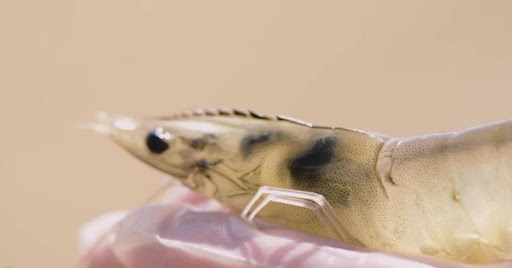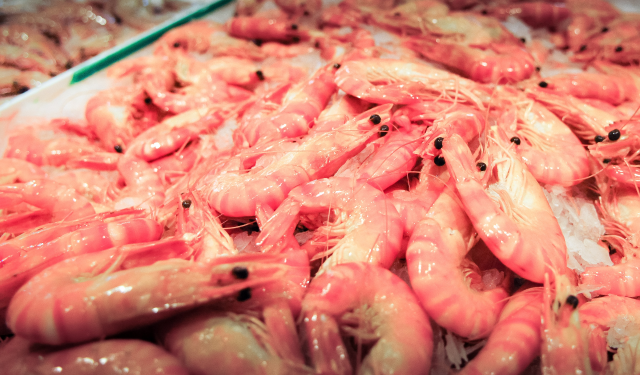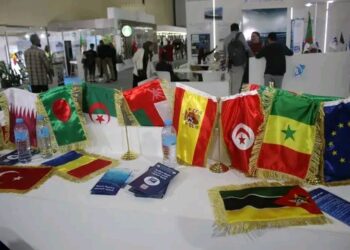Shrimp farming is a success story of modern aquaculture – Shrimp is one of the most traded seafood commodities, and aquaculture of shrimp is considered to be one of the success stories of modern aquaculture.
Shrimp farming generated millions of employments, and provides foreign exchange to developing countries.
The growth of farmed shrimp production has been spectacular. Globally, farmed shrimp production grew from 10000 mt to 4 million mt. growth of shrimp aquaculture is remarkable, the sector has been facing several issues such as viral diseases, issues in marketing, and poor farm level performances.
Aquaculture is the farming of fish, crustaceans, molluscs and aquatic plants in aquatic environment; sometimes it is referred to as aquatic agriculture, as an aquatic counterpart of terrestrial agriculture. Here farming implies some sort of intervention in rearing process, such as regular stocking, feeding or protection from the predators.
Aquaculture is the fastest growing food producing industry with a total global aquaculture production of 73.8 million tonnes.
Aquaculture of shrimp is considered to be a success story of modern aquaculture.
Shrimps had been raised as an incidental crops in coastal ponds/or coastal low-lying ecosystems. A total of 582 species are farmed worldwide and of these 62 are crustaceans.
The total global farmed crustacean was 6.9 million tonnes valued for 37 billion USD. Although many crustaceans attract lucrative markets, shrimp has become the single most successful crops, and mainstay of the brackishwater coastal aquaculture in India, many Asian countries, Middle East and Africa.
The advent of sophisticated refrigeration facilities provided by artisanal farmers access by international markets. Thus traditional coastal aquaculture shifted to an export oriented or industrialized aquaculture.

Focus Africa shrimp farming in Egypt
Shrimp is a marine species found in abundance in the Mediterranean, Red Sea and many other areas in Egypt and lives away from intense light near the bottom and rocky areas with a sandy bottom.
Shrimp among crustaceans, whose most important family is the Penaidea family and one of its most famous members is the genus Penaeus, and the sea shrimp represents a prominent and distinct place among all kinds of different marine products for its economic importance and consumer demand for the quality of its taste and high nutritional content.
Saltwater shrimp in Egypt are divided into several genera, the most important of which is the genus Penaeus, which is followed by several species, including:
P.semisulcatus, P.Japonicus , P.indicus, P.monodon, L. vannamei.
Statistics of the General Authority for the Development of Fisheries Resources indicate that there is an increase in the production of marine shrimp from natural sources (from 1980 to 2006), but this increase is represented by small non-economic types and this is evidenced by the rise in shrimp prices in Egypt in recent years, where the price of a kilogram of shrimp (15 grains / kg) reached about 90 pounds in 2008 compared to 25-30 pounds from ten years earlier, so the trend began to cultivate shrimp industrially to increase.
The first attempts began in Egypt in the seventies at the level of scientific and academic research at the Institute of Marine Sciences and Fisheries to resettle the P.semisulcatus and P.Japonicus in Lake Qarun in Fayoum, then the operations of shrimp farming in Egypt were entered by the private sector in the mid-nineties (1994) in the Sharm el-Sheikh area in Sinai, the Sahl eltena in Port Said and the Dedeiba Triangle in Damietta.
From the analysis of the data, the production of farmed shrimp in 2020 about 2100 tons Compared to a year 200487 tons (GAFRD2020-2004 ) it is clear that the P.semisulcatus is considered the best in breeding under the conditions of the Egyptian environment. Various research and studies have proven that P.semisulcatus is characterized by a rapid growth rate and its nutritional needs are relatively lower than other species and the P.semisulcatus is considered a mixed nutrition Ominivorus where it feeds on a variety of food that graduates with age but becomes a predator if the density of farmed shrimp rises with the lack of food in quantity and quality suitable to meet its nutritional needs, Like other species, the P.semisulcatus bury itself at the bottom of the ponds during daylight hours and increase its activity at night for feeding, disintegration and reproduction.
Currently, Egyptian shrimps are sold exclusively in the domestic market.







